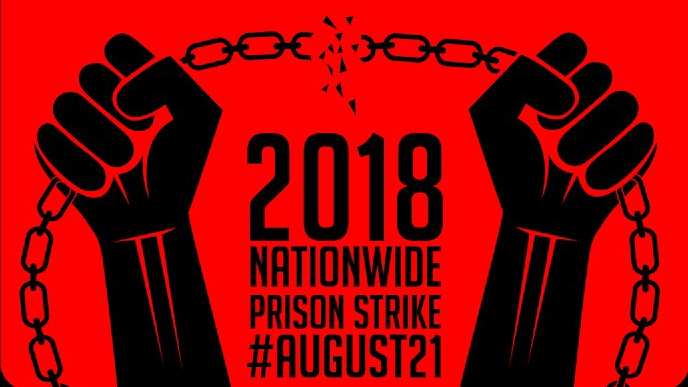Prison inmates throughout the United States launched a two-week strike on Tuesday to pressure America’s penal system to stop exploiting prisoners.
The strike is timed to begin on the anniversary of the killing of inmate George Jackson, a jailed civil rights activist killed by a guard in 1971 after attempting to escape from San Quentin State Prison in California.
The final day of the strike, September 9, also carries symbolism as the day in 1971 that the Attica Prison riots in New York began, eventually leaving over 40 people dead when police stormed the facility.
Prisoners leading the protests say the strike is aimed at ending modern-day slavery, the fact that they are paid pennies on the dollar per hour for labor by the military industrial complex.
The event is spearheaded by Jailhouse Lawyers Speak, a network of imprisoned prisoner rights advocates based out of Lee Correctional Institution in South Carolina and supported by the Incarcerated Workers Organizing Committee (IWOC), a prisoner-led trade group.
Inmates plan to abstain from reporting to their assigned jobs, halt commissary spending, hold peaceful sit-in protests and refuse to eat during the strike.
“Prisoner participation depends on their location and privilege status,” said Amani Sawari, a prison reform activist and spokesperson for the strike.
“If inmates are working they can suffocate the prison industrial complex by reducing their spending. In some detention facilities, prisoners may not be working so they might do a sit-in. It all depends.”
The call for action comes as a response to a prison riot in Lee Correctional Institution in April, resulting in the death of seven inmates and injuring of over a dozen others.
“Initially a strike was planned for 2019, but the Lee prisoners wanted a now-response. We want to make sure that things like this don’t happen in the future,” said Sawari.
The prisoners released a list of ten demands on the IWOC website that include the immediate improvement of prison policies, an increase in prisoner wages and rescinding laws that prevent imprisoned persons from having a chance at parole. The inmates also call for voting rights and more rehabilitation services.
Prisons in at least 17 states are expected to participate in the two-week protests, according to Sawari, with a majority of them located in the American South and West Coast.
Experts say that there is a chance that the protest may lead to substantial changes in some detention centers.
“If the strike is widespread enough, it could be effective,” said Law Professor Lea Johnson of the University of Florida Levin College of Law.
“These circumstances like poor labor conditions, poor prison conditions, unpaid labor, and lack of access to mental health treatment exist seemingly behind closed doors. By going on a national strike, you pull back the curtain and it can force legislators to act.”





